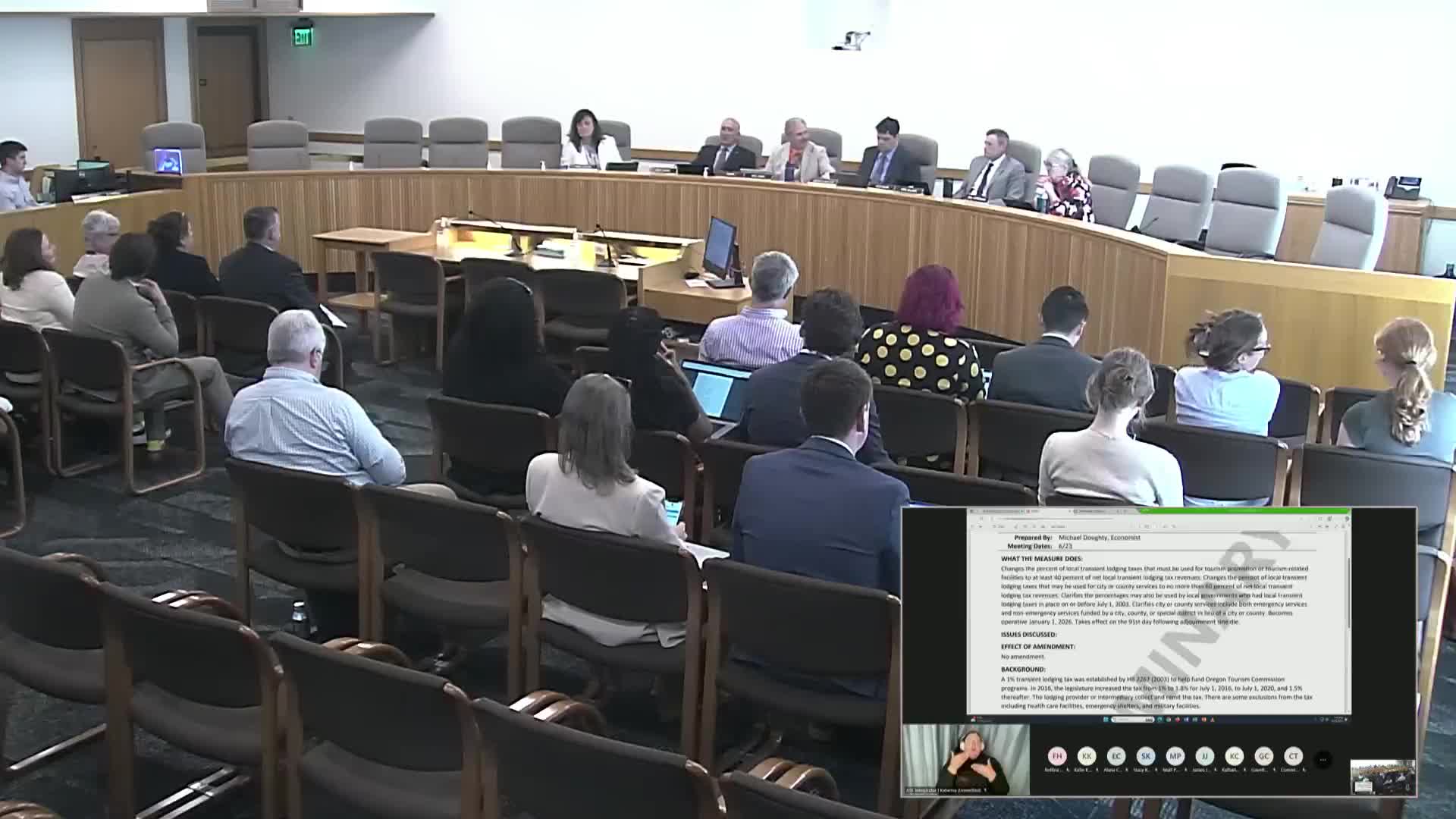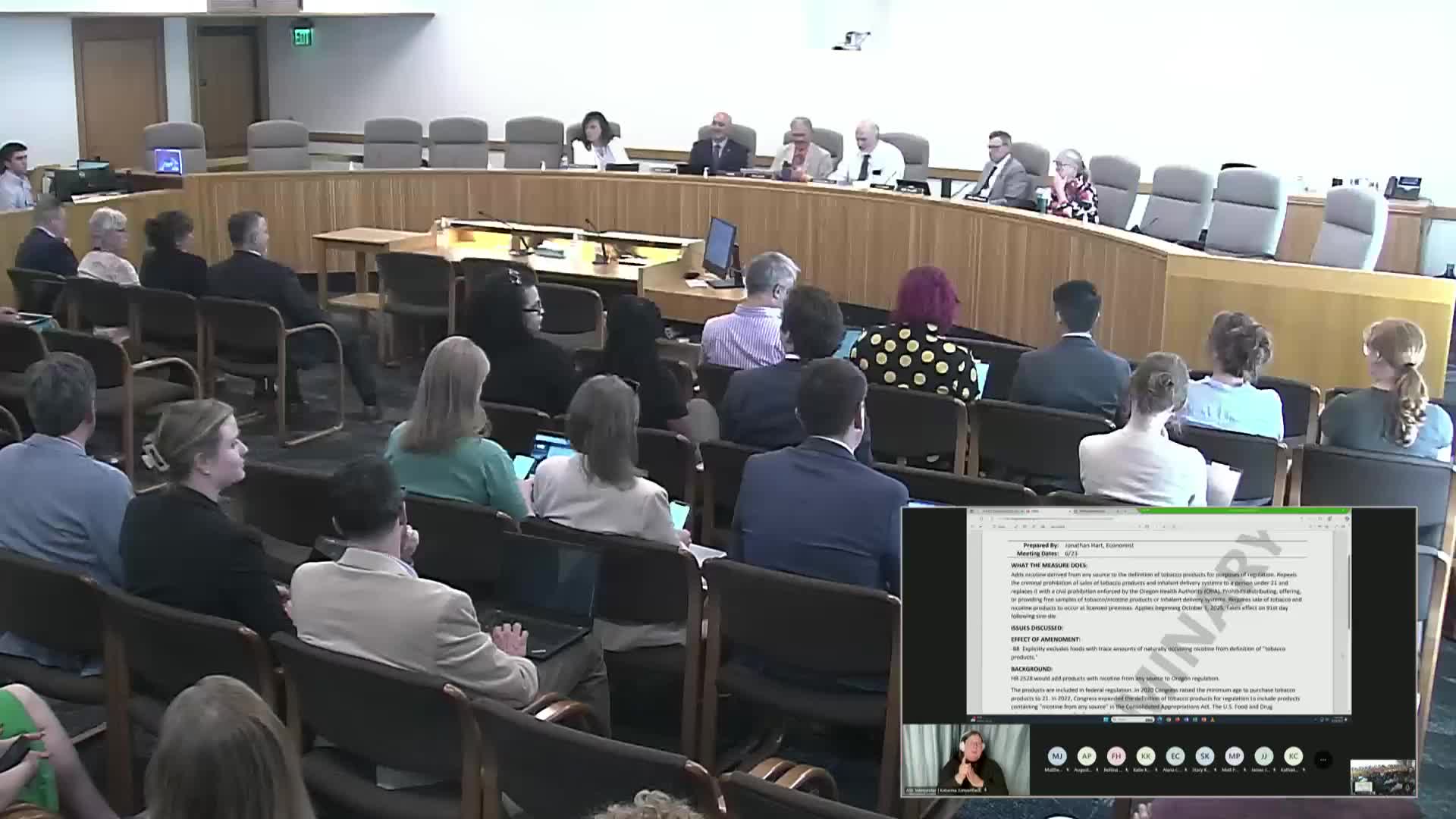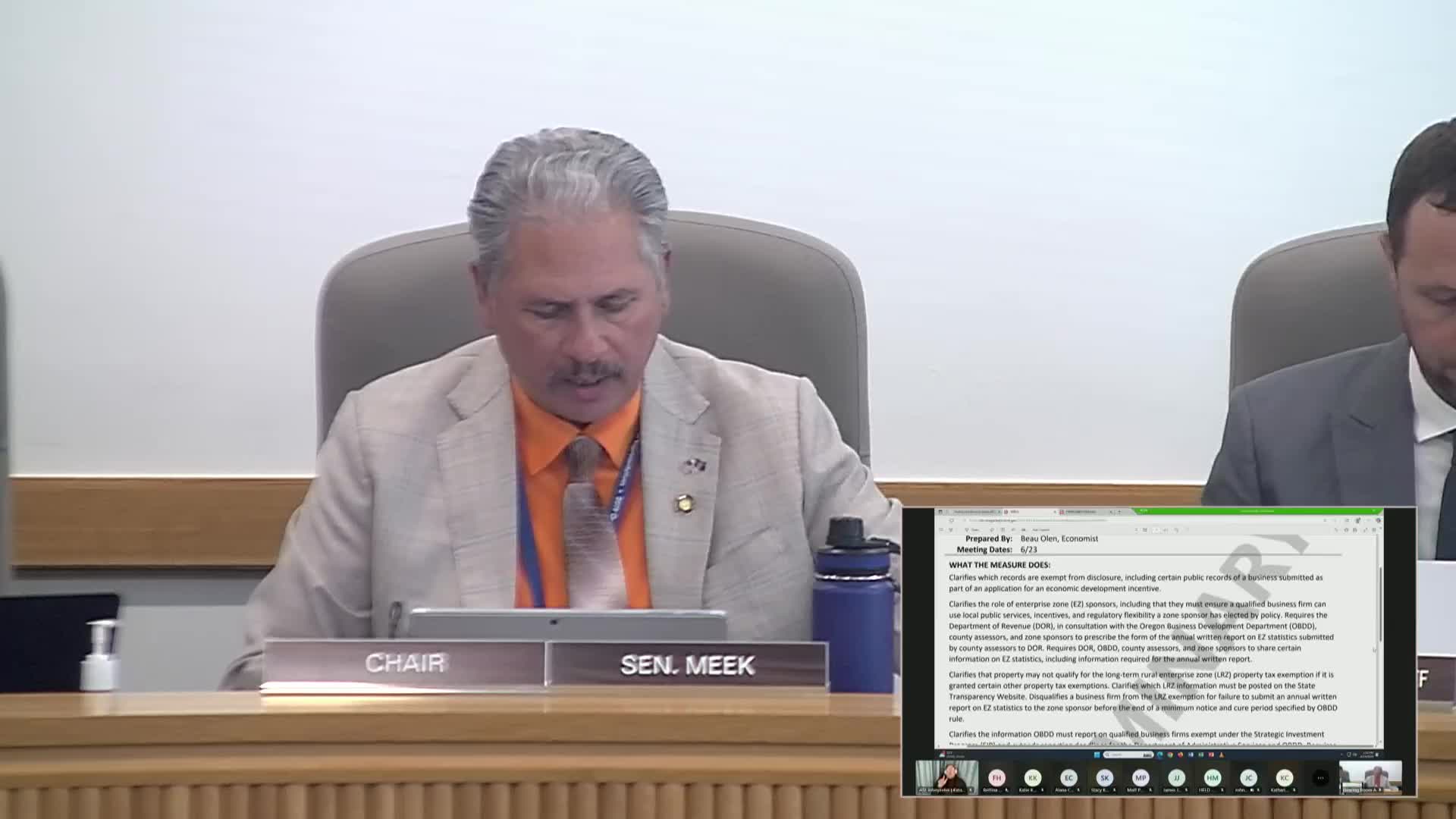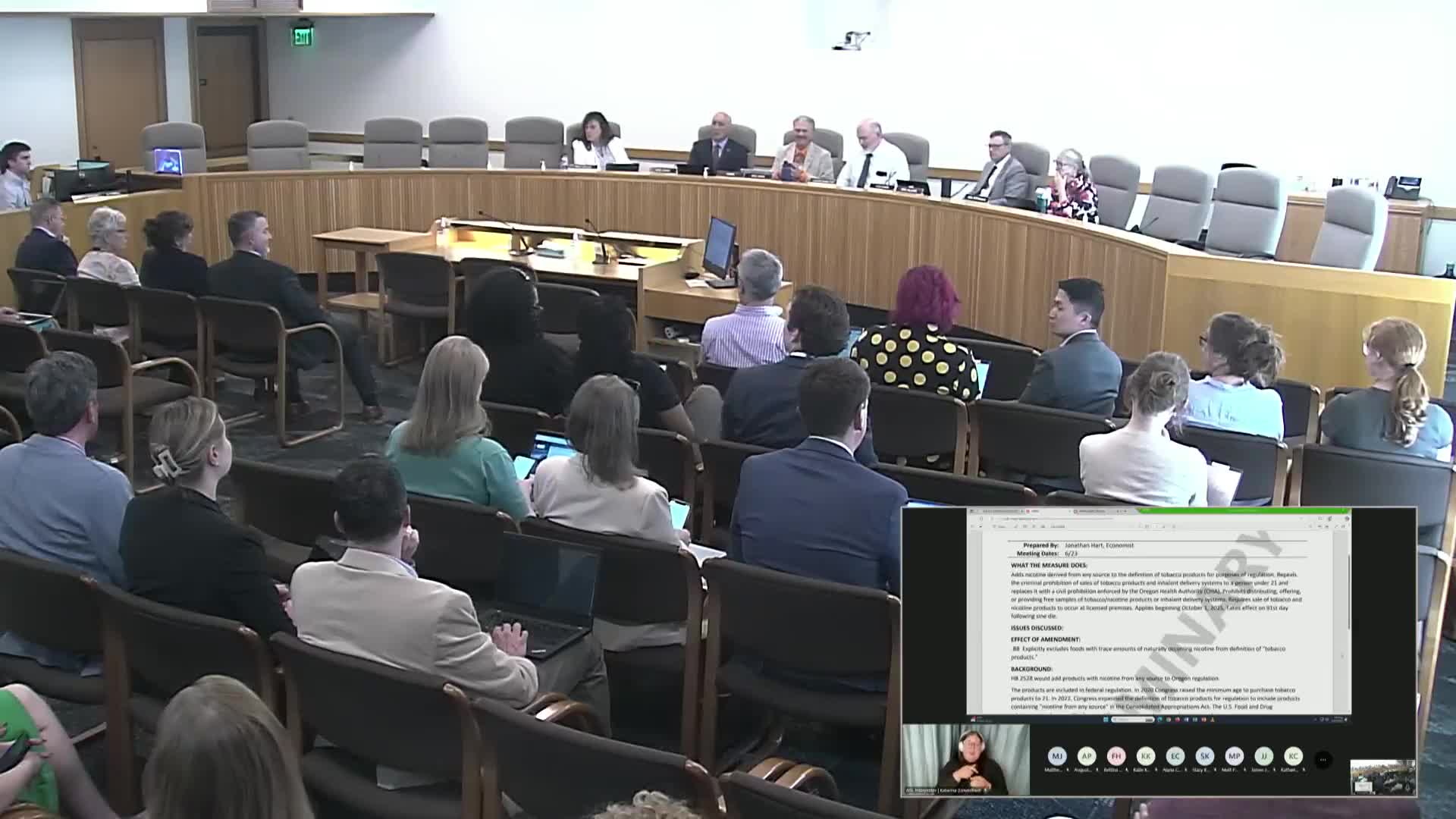Article not found
This article is no longer available. But don't worry—we've gathered other articles that discuss the same topic.

Lawmakers consider shifting transient lodging tax flexibility to help local public services

Committee advances bill to regulate nicotine pouches, rejects food-exemption amendment

Senate committee backs bill narrowing which ports must sign SIP agreements after counties object

